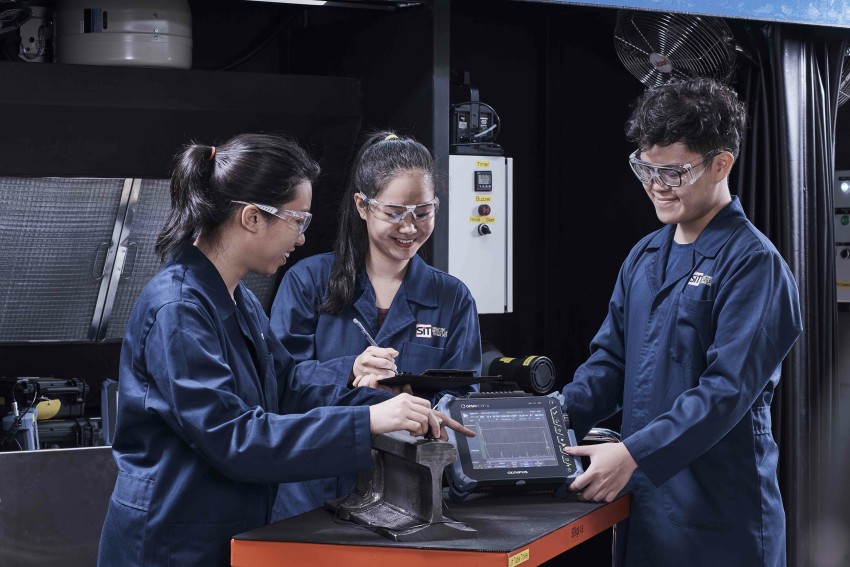As Singapore proceeds on its future economy journey, facing technological disruption and equipping students with essential skills plays a vital role.

Education systems around the world take note of the best practices in Singapore as bright students continue to report high test scores and graduate prepared for successful careers in an evolving global economy. With the National University of Singapore (NUS) and Nanyang Technical University (NTU) ranked 11th and 12th in the 2019 QS World University Rankings, students from around the world are presented with promising options in Singapore.
With changes on the horizon, universities and secondary schools alike must begin planning how to train students for the job market of the future. Technology, automation and innovation represent growth but they also signal a necessary evolution in the realm of education if future students are to integrate into jobs not yet created.
Prof. Tan Thiam Soon, President of the Singapore Institute of Technology (SIT) says that, “One of our challenges is to get young people to have more di- verse dreams and objectives. Currently, there is a fair degree of homogeneity about what they think ‘success’ is. What we need is to have greater diversity and skill sets amongst young people. They should learn how to blend high-touch with a core under- standing of the high-tech, and be able to think out of the box.”
SIT works with university partners overseas, as well as industry, expanding the ecosystem in Singapore to better prepare for disruption. “Our approach in SIT is to engage industry with an integrated approach,” says Prof. Tan. “If in the process, the workers need retraining, we will come
in to retrain the workers. If the industry needs a pipeline of new workers, they can look to our students as future talent partners.”
Other universities are also focused on the life-long learning initiative that has been adopted throughout the country. At NTU, alumni receive up to $1,160 worth of course credits that can be used to apply for more than 120 skills-based courses. Pres- ident of NTU, Professor Subra Suresh says, “We created technology-enhanced learning on our campus, so that our alumni –who may have graduated from NTU 10 years ago – can learn more about, say, biotechnology through an NTU online course. This is our attempt to help our alumni to upskill and reskill.” NTU already has almost 230,000 current alumni in over 150 countries.
Another recently launched initiative called SkillsFuture is a government program aimed to encourage all citizens to take advantage of opportunities like those offered at NTU. Professor Tan of SIT says of the program, “SkillsFuture is really putting in an ecosystem of helping kids get- ting their all-important first job but recognizing that no matter how we train, it will never be enough.” It strives to encourage individuals to understand their choices when it comes to education and careers and to truly foster a culture that supports lifelong learning as a response to evolving industry needs.
According to NUS President, Tan Eng Chye, “The World Economic Forum has estimated that two-thirds of the children going into primary school today would end up in jobs that do not exist right now, 65 per- cent according to them.”
At NUS, students learn quantitative reasoning, statistics and computational thinking for AI and data analytics but they are encouraged to work on their interpersonal skills, learning about mindfulness and resilience. NUS also recently began their Lifelong Learners’ program, which lengthens the time of enrollment at the university to twenty years, allowing graduates uninterrupted access to continuing education programs.
The disruption is coming and as Prof. Tan of SIT states, “education is a challenging future for generations and that it is not a Singapore problem but a glob- al one.” This compact nation is poised to lead the way and is perhaps, ahead of some of the other global players. NUS alone has incubated about twenty-five percent of the startups in Singapore and partners with colleges overseas in locations such as Silicon Valley, Toronto, Stockholm and Munich, to name a few. Reinventing workers’ skill sets and inspiring innovation through education upholds Singapore’s reputation as a home for new business and evolving future markets.
0 COMMENTS